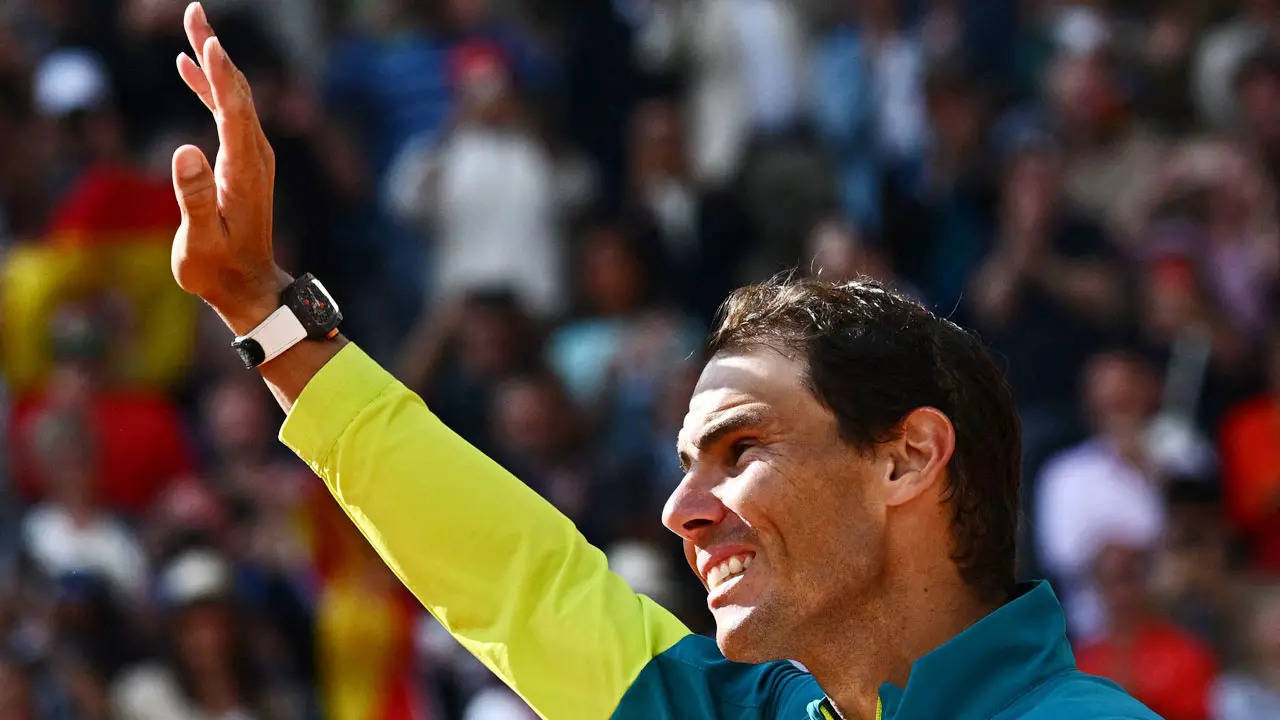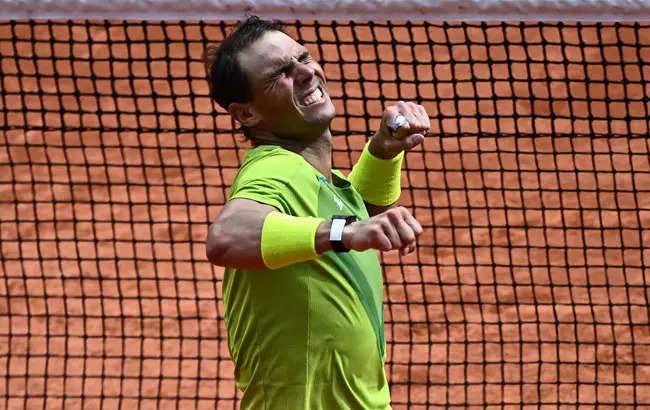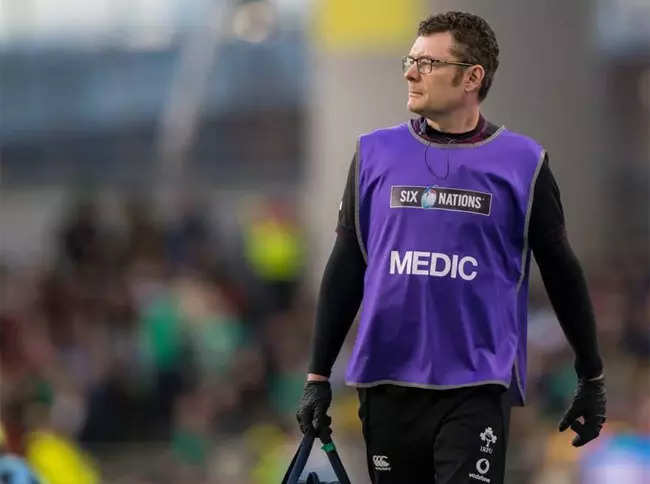
NEW DELHI: In the recent men's French Open semifinal, Rafael Nadal's concern for Alexander Zverev's ankle injury was obvious. Suffering from a chronic foot injury himself, the Spaniard knows the agony an injured state can cause. Wearing a worried look, Nadal empathised with Zverev, who was writhing in pain on the Roland Garros clay as the doctor checked on him.
A few days after his 14th French Open triumph, the 22-time Grand Slam winner was at the doctor's clinic himself.
In the lead-up to the clay-court Grand Slam, Nadal's chronic injury, the Mueller-Weiss Syndrome in medical terms, flared up at the Rome Masters.
It's an injury that Nadal has been managing for years and one that kept him on the sidelines for most of last year. But his drive to excel is perhaps unmatched, which is what fueled Nadal's record-making comeback at the Australian Open. He defeated a red-hot Daniil Medvedev in the final to win his 21st Grand Slam trophy -- going past Roger Federer and Novak Djokovic.
But Nadal's favourite clay season this time didn't begin like it ended. In Rome, the foot didn't cooperate and Nadal lost to Denis Shapovalov in the round-of-16 clash. On top of that, he had a rib fracture.
"Everybody knows in the world of tennis that the preparation (for the French Open) was not ideal," Nadal told Eurosport. "I have been outside of the practice courts for one month and a half with a stress fracture on the rib. And then I have the foot that is something that stays there all the time. In Rome, it was very difficult. But I've had my doctor here (at Roland Garros) with me and we played with no feeling in the foot."

Rafael Nadal (AFP Photo)
With an injury at the back of his mind, Nadal defeated Novak Djokovic in the French Open quarterfinal before prevailing over the unfortunately injured Zverev in the semis and brushing aside Casper Ruud in the final.
All that with a foot that was "asleep".
"We played with an injection in the nerve so that the foot was asleep, so that's why I was able to play," he was quoted as saying.
What is it that pushes elite athletes to the point that they can manage such career-threatening injuries and still remain at the top of their game?
Stephen Mutch, who is the lead physiotherapist of Ireland's senior men's rugby team, believes it all boils down to the individual's 'motivation' and logical 'understanding' of the situation.
"The risks that you take as a youngster might be very, very different compared to the risks you're taking towards the twilight of your career," said Mutch, who is the advisory board member of Gitam School of Physiotherapy, while talking to TimesofIndia.com.

Stephen Mutch
"With that in mind, they (veteran elite athletes) will then explore what's their motivation to continue now, compared to motivation for some (other) athletes, who are now retiring because they often say it's not worth it for them (anymore) or they'll feel that their body is unable to participate in the same way," he added.
A couple of days after his 14th French Open triumph, Nadal was seen on crutches, having undergone treatment on his foot.
It's nothing less than incredible that an athlete goes through all that at the fag end of his career and still comes back to win Grand Slams.
Mutch says it's a decision that athletes have to take by putting every situation on the table and weighing it up against their drive to continue.
"The motivation is linked also to potentially where they are contextually in their career and within their life," said the former physio of Scotland's Commonwealth Games team. "So the decisions that are made around that specific injury will change according to where they see themselves within the context of their career, their contract or their life.
"Decisions will be taken in accordance with the medical team that is surrounding the athlete and with potentially agents and family for sure. So they look at the consequences, they look at potential treatment plans, not just for the here and now and for the immediacy of an event, but also what are the consequences if they continue." Mutch further told TimesofIndia.com.
"All of that adds up to a decision. Do I participate in the sport any longer? Are the risks outweighing the benefits to my health and to my abilities going forward and to my place within the family, perhaps within the culture as well. They (athletes) will weigh up the benefits against the risks and then within the context of their career at this position and how they imagine their career would pan out from now, that's when they can make a decision as to whether participating is really a good thing or not such a good thing."
While maintaining that it's a personal decision taken by an athlete, knowing that it can go either way for his life after retiring from the sport, Mutch said the "long-term outcomes" of Nadal's decision to continue are difficult to ascertain at this stage.
"In the case you're describing (of Nadal), that decision appears to have been made and therefore we've seen the outcomes. We don't know the long-term outcomes. I've probably read similar articles in terms of what those outcomes might be from a health perspective, but all of those are linked to what the motivations are of that individual and what can that individual pay attention to right now that will affect his sport and also the overall career and health.
"It's a really tricky thing for the athletes, and part of our support role is to provide them with the information that helps inform them around the context and within the environment that they are currently in and what they could be going into after their sports career ends."
Nadal, who is currently 36, is now eyeing a return to Wimbledon this year for the first time since 2019. The most successful men's singles player of all time has begun practising on grass in his hometown of Mallorca. His uncle, Toni Nadal, had recently also told a tennis website that even if Rafa sees a slight possibility of playing at Wimbledon, he will. So far, Nadal has won two Wimbledon titles in his career - in 2008 and 2010.







